The horsemen making a living on Lagos beach Nigeria
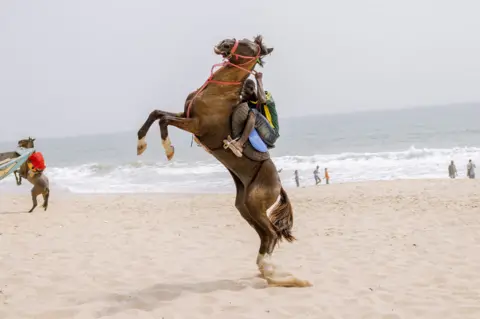 Grace Ekpu/BBC
Grace Ekpu/BBC
Residents of Nigeria's commercial hub, Lagos, take to the beach to get away from the stress of the city.
They paddle, picnic, play football and party. The more daring might pay to take a ride on a horse - with the help of the beach horsemen.
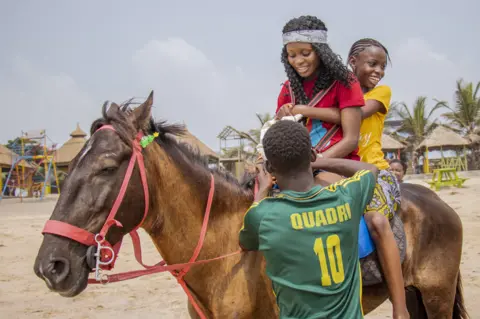 Grace Ekpu/BBC
Grace Ekpu/BBC
Quadri Raji, 19, is a phone repairer during the week, but works with the horses on Atican beach at the weekend.
He had to stop secondary school when his mother had her leg amputated after an accident.
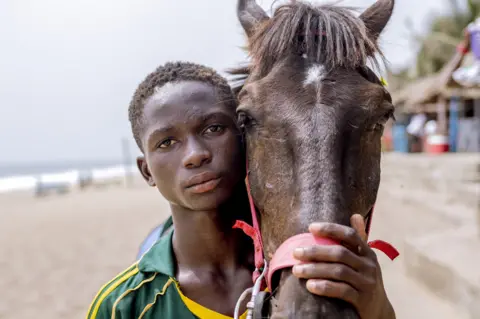 Grace Ekpu/BBC
Grace Ekpu/BBC
Now he takes care of her and hopes to earn enough money to write his final school exams.
"I would like to continue my schooling but for now this is all I have to do to survive," he said.
On the beach, Quadri can earn about $28 (£22) a day, but he has to give some of that to the horse's owner.
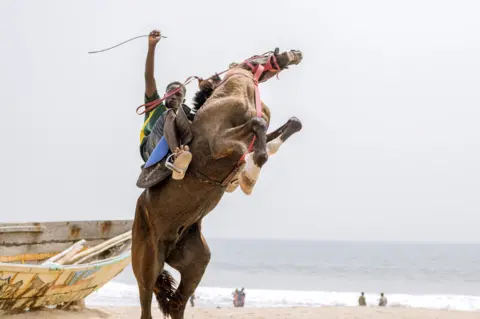 Grace Ekpu/BBC
Grace Ekpu/BBC
His horse, Jack, used to perform as a dancing horse at traditional festivals, but Quadri has been training him to work on the beach.
Nevertheless Jack can still do tricks.
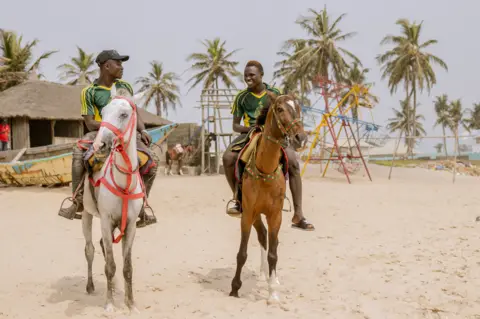 Grace Ekpu/BBC
Grace Ekpu/BBC
Tunde Sanni (left), 28, has been riding on the beach for more than 13 years and is now the chairman of the Atican Horse Rider Association.
Both his parents died in 2008 and he also works as an iron welder.
"Horse riding has stopped me from stealing," he said.
 Grace Ekpu/BBC
Grace Ekpu/BBC
Tunde has a scar on his forehead from when he was knocked off his horse by a car while riding it to the stables in 2010.
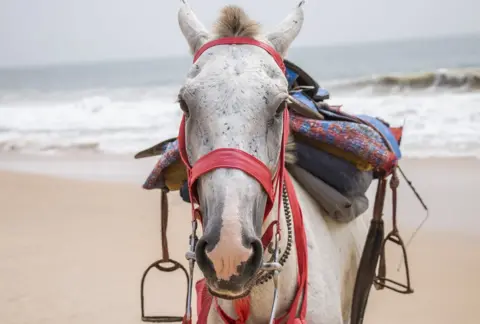 Grace Ekpu/BBC
Grace Ekpu/BBC
Stone is one of his three horses. He also owns Prince and Pale.
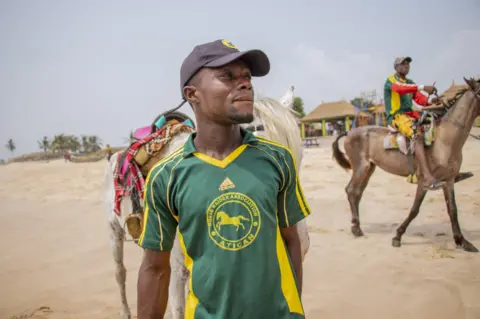 Grace Ekpu/BBC
Grace Ekpu/BBC
Lanre, 30, has been working with the horses on the beach for three years.
He also works as a livestock farmer selling goats and turkeys at the local market. At the weekend he takes his horse, Spaghetti, to the beach to make some extra money.
"I have a wife and two kids to feed so I just come to make any extra for the family."
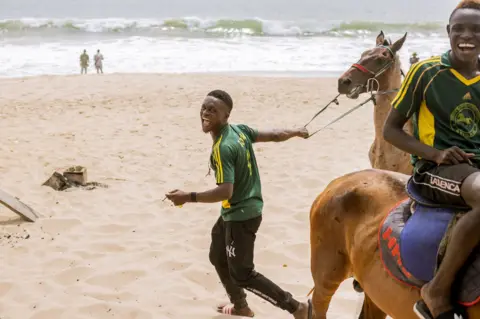 Grace Ekpu/BBC
Grace Ekpu/BBC
Adebowale Dada's horse, Jerry, used to work as a racehorse. He bought him from the northern city of Kano last year for $700 (£535).
"This is my only work and I have to take care of my wife and save for my children's school fees," he said.
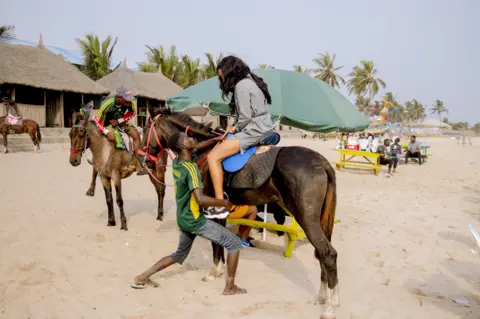 Grace Ekpu/BBC
Grace Ekpu/BBC
Rides cost between $1.40 and $2.80 and customers are always accompanied by one of the horsemen.
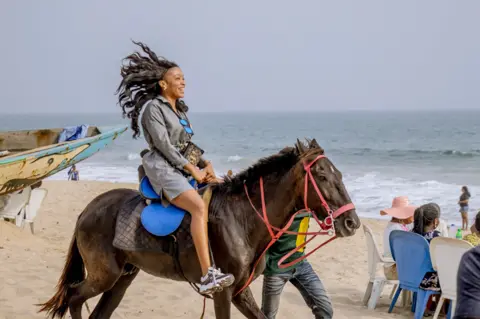 Grace Ekpu/BBC
Grace Ekpu/BBC
This was Favour Eric's first time on a horse. "The experience was scary, but it was worth it," she said.
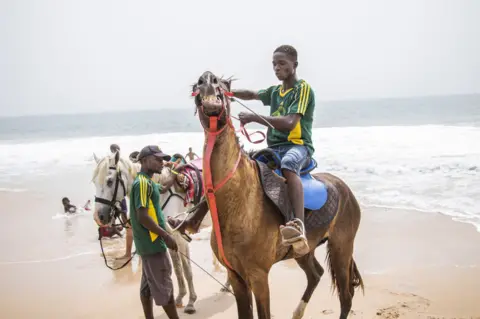 Grace Ekpu/BBC
Grace Ekpu/BBC
The horsemen here typify many in their generation who have to find creative ways to make money or supplement their income as well-paid jobs are in short supply.
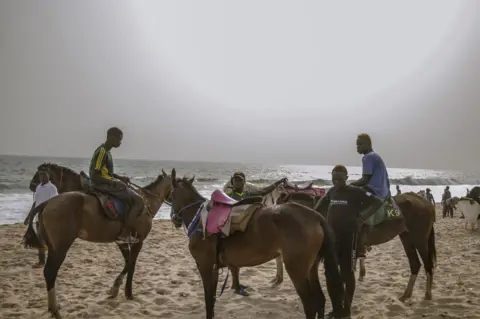 Grace Ekpu/BBC
Grace Ekpu/BBC
Pictures by the BBC's Grace Ekpu
